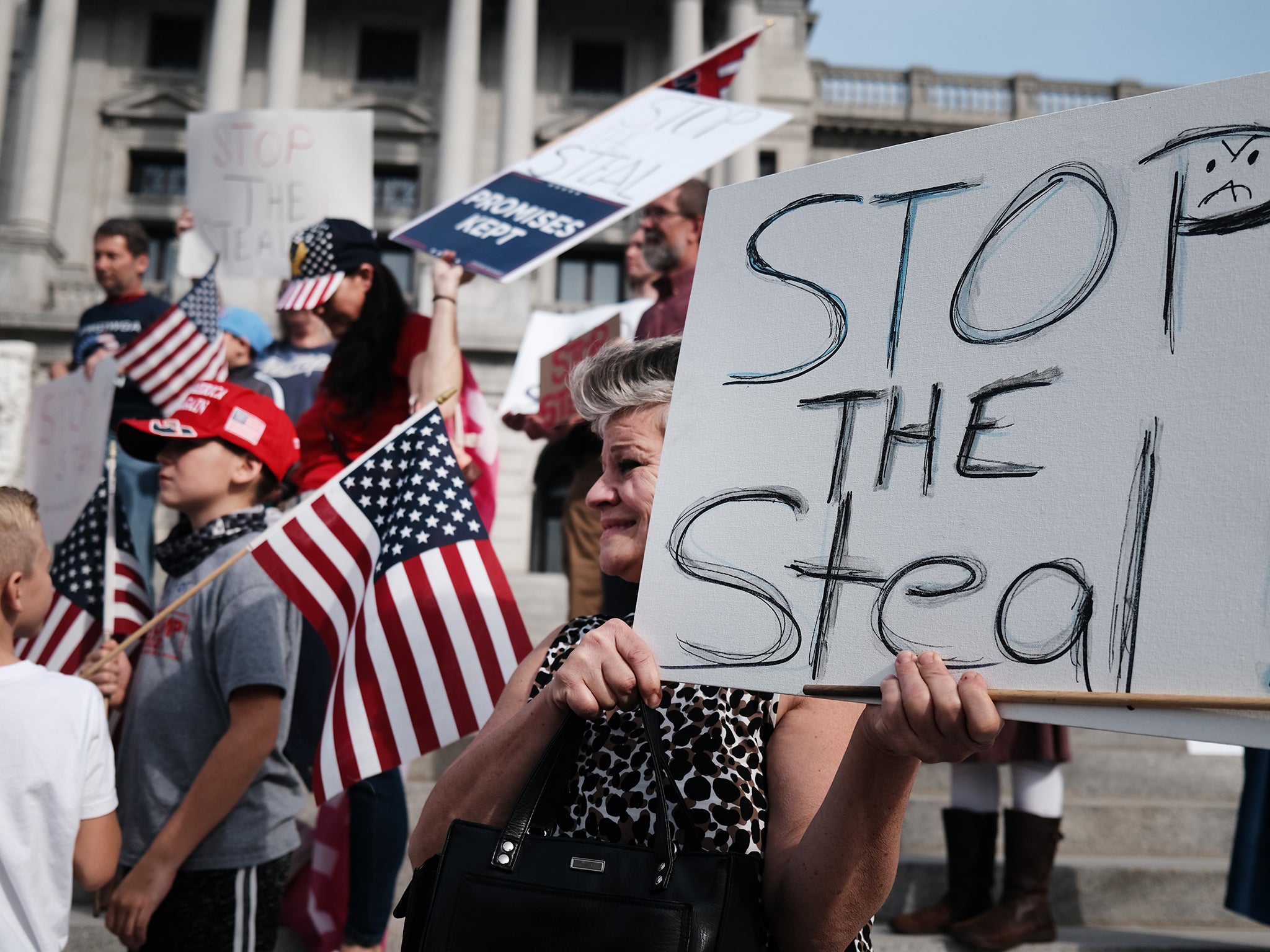The Republicans’ post-defeat plan is much more sinister than Dr Seuss
As the GOP seeks a direction amid Trump-driven discord, efforts at voter restriction are going into overdrive, says Phil Thomas


Margaret Thatcher had won three landslide elections for Britain’s Conservative party by the time she began to look like an electoral liability – and was promptly thrown overboard by her closest colleagues.
During the long years of opposition during Tony Blair’s premiership, the Tories tried out various contenders – William Hague, Iain Duncan Smith, Michael Howard – before chucking them out like yesterday’s garbage when they failed to make the grade.
The Conservatives are pretty ruthless when it comes to their leaders. Even in the past decade of power, they have got through three (so far) prime ministers. (Watch out, Boris.)
Here in the US, their American counterpart – the Republican Party – is showing no such decisiveness in ditching a failed leader.
As even certain Republicans, like Louisiana senator Bill Cassidy, have pointed out, Trump managed to lose the White House, the Senate and the House of Representatives in the space of just one term – the first president to do so since Herbert Hoover (1929-1933). And just as Hoover was overwhelmed by a once-in-a-generation crisis he had no idea how to deal with (the Wall Street crash and subsequent Depression), Trump left office having utterly failed to react effectively to the coronavirus pandemic. (Not to mention the small matter of trying to overthrow a fair election and instal himself, effectively, as dictator.)
Of course part of the problem for the party is that he won’t go away and let them move on. No noble farewell, no “I did my best and fully support my successor” type speeches that you might hear from a stuffy old Conservative.
Instead, backed by the membership in the country (almost always more hardcore than the party establishment, as Jeremy Corbyn’s enemies and anti-Brexit Tories found), Trump is doubling down on the decisiveness.
Condemning RINOs (”Republicans In Name Only” – which effectively means anyone not sufficiently sycophantic to him), he is publicly listing the enemies he wants purged from the party; hinting at a comeback (but, importantly, not committing either way); and trying to divert donations away from the Republican fundraising bodies and into his own pocket.
Meanwhile, as they stubbornly oppose the widely popular $1.9 trillion (£1.3 trillion) Covid relief bill (which even Republican voters largely back), the main public focus of the right is the fate of Dr Seuss, the Muppets and Mr Potato Head. Fox News, the unofficial channel of the Republican Party, has spent days feverishly discussing the existential threat of “cancel culture”. (Albeit none of these issues has any direct connection to the Democrats.)
While the obsession has attracted derision, one school of thought is that the party and its media supporters are stuck in a holding pattern, waiting for the Grand Old Party to find itself a sense of direction amid the Trump-driven discord, or a chance to land a glove on Biden and the Democrats.
But behind the scenes, Republicans around the country are working hard on something that could secure their power for years to come – new voting rules which will make it more difficult for many people, especially African Americans who tend to back Democrats, to vote.
As The Independent’s Alex Woodward reports, more than 250 bills have been introduced in 43 states to cut mail-in voting, add barriers to voting and even restrict the “Souls to the Polls” initiative which sees people casting their votes on the Sunday before election day after going to church. The tradition is particularly popular with African Americans.
The focus on restricting voting feeds on Trump’s now fully discredited claims of voter fraud in 2020. In Georgia in particular, which turned Democratic blue in the presidential race and both Senate seats, Republicans appear grimly determined not to let those pesky voters disrupt their plans again.
At national level, the Democrat-led lower house of Congress has now passed a 2019 bill called HR 1 (or the For the People Act) which would boost voting rights across the country. Its chances of passing the Senate, where Republicans can deploy the notorious filibuster to ensure the minority gets its way, look slim.
The battle to allow all authorised Americans to vote – or to find ways to stop those who may vote against you – will be one of the defining struggles of the next four years. It’s one of the stories The Independent will be focusing on all the way through, whatever becomes of Mr Potato Head.
Yours,
Phil Thomas
US Assistant Editor
Join our commenting forum
Join thought-provoking conversations, follow other Independent readers and see their replies
Comments